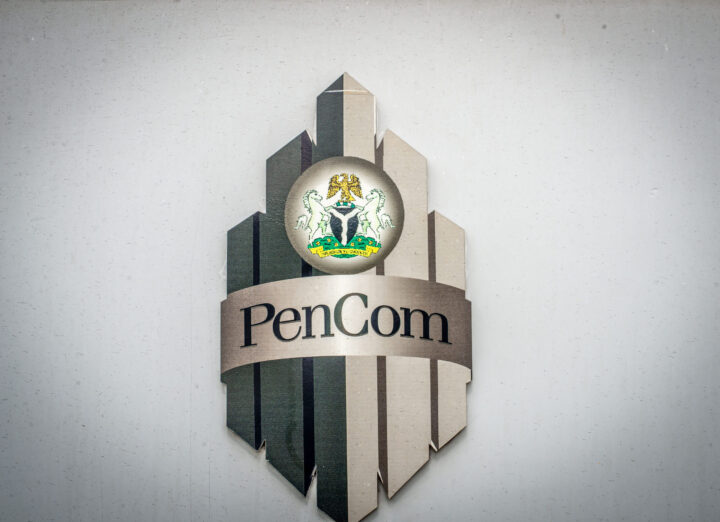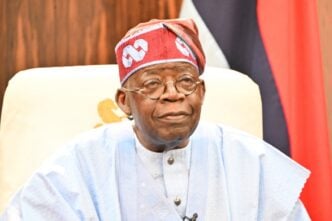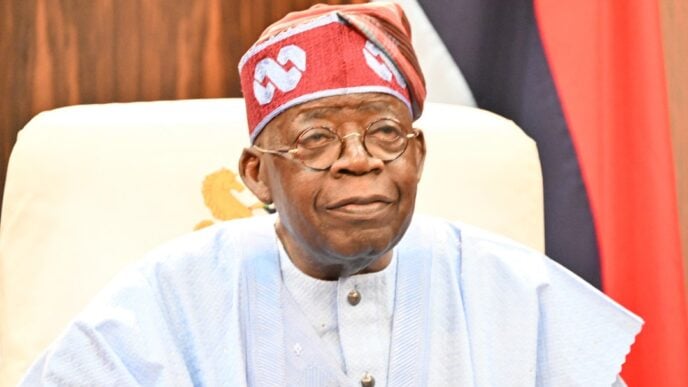BY IBRAHIM BUWAI
As rightly noted by the Cable Online in their article with the above caption, which was widely circulated online on Tuesday, September 30, 2025, “PenCom has been on a regulatory spree, rapidly issuing new and revised industry guidelines”.
This remark emanated from the Launch of the Pension Revolution 2.0 announced by the PenCom Director General, Ms. Omolola Oloworaran, who said the initiative ushers in a new era of dignity for retirees, inclusion for every Nigerian worker, and resilience for our national economy. The reforms, she said, were to be enabled by an unprecedented daily release of new regulations, each setting higher standards across critical pillars.
It was during these heightened activities at PenCom that this article from TheCable emerged.
Advertisement
Public servants have a responsibility to enlighten stakeholders and provide explanations on substantive issues in order to retain public trust. For the Contributory Pension Scheme (CPS), which PenCom regulates, transparency is at the heart of its success. That is why the issues raised by the Cable should be responded to.
CONCERNS ON CORPORATE GOVERNANCE GUIDELINES
The assertion by the Cable that the new corporate governance regulations allow principal owners to remain on the board as Non-executive directors (NEDs) even after completing the regulatory tenure limit was not put into proper context.
Advertisement
The overriding rationale for the review of these guidelines is to strengthen corporate governance in the pension industry. The treatment of Principal Owners is both practical and necessary. Tenure rules are designed to keep boards independent and refreshed, but when applied mechanically, they can create unintended outcomes – driving the real power brokers off the board and into the shadows. In the pension industry, where accountability and transparency are non-negotiable, that is a risk the regulator cannot ignore.
Principal Owners, by virtue of holding 51% or more, already dominate Annual General Meetings and shape board composition. Their strategic vision drives the business whether or not they hold a board seat. PenCom’s approach acknowledges this reality but keeps such influence visible, structured, and subject to oversight. By allowing only one Principal Owner to sit on the boardunder strict conditions, the Commission ensures that control is exercised openly, prevents shadow directorships, and subjects that presence to enhanced scrutiny.
This aligns with global best practice. Other jurisdictions allow controlling shareholders on boards, but under strong safeguards. PenCom has gone further by layering multiple protections: re-election every 3 years, external annual performance evaluations and restrictions on membership of sensitive board committees. Notwithstanding these safeguards, PenCom also retained the right to restrict or terminate the tenure of any principal owner should governance concerns, regulatory non-compliance, performance deficiencies or ethical breaches arise.
This is not a dilution of governance but a calibrated balance. It recognises that ownership rights and regulatory responsibilities must co-exist. Far from creating an exemption, the guidelines bring Principal Owners inside the framework, where their influence can be monitored, checked, and ultimately aligned with the fiduciary duty owed to pension contributors.
Advertisement
THE PROVISIONS ON PRINCIPAL OWNERS ARE NOT FOR THE INTEREST OF ANY INDIVIDUAL
It is somewhat disingenuous to impugn that the provisions for principal owners were to serve the interests of an individual.
PenCom’s analysis of the shareholding structure of Licensed Pension Fund Operators (LPFOs) revealed that this was not the case. As at 30 September 2025, 19 out of 23 LPFOs, which include Pension Fund Administrators (PFAs) and Pension Fund Custodians (PFCs), have single-entity majority shareholders with at least 51 percent stake where some hold up to 100 percent! This proves that it is an industry-wide scenario, which means the provision was clearly in the overwhelming interest of all the LFPOs. However, it is noteworthy that no individual was recorded as a majority shareholder in any LPFO, as all are corporate entities.
OVERTURNING OF A N1 BILLION FINE
Advertisement
The allegation by the Cable that Leadway Pensure PFA had its fine overturned is blatantly false.At the heart of PenCom’s reputation as a regulator is its avowed zero tolerance for infractions. That was exactly what came to bear in the case of Leadway Pensure PFA and NLPC PFA when both were sanctioned for engaging in repurchase transactions in January 2024. Although these transactions were between funds managed by the same PFA, it was determined that a violation occurred due to transacting with pension funds at prejudicial prices, contrary to Section 2.7 of the Regulation on Investment of Pension Fund Assets (the Regulation).
Consequently, the PFAs were issued administrative sanctions of N72million and N24 million, respectively. In addition, the PFAs were directed to refund into the Retirement Savings Account (RSA) Funds under their management the sums of N1.45 billion and N384 million, respectively, as the computed losses, since the transactions were not conducted at market prices.
Advertisement
While the refunds had been substantially paid by the two operators, PenCom received an appeal, urging the Commission to reconsider its directive on the amounts to be refunded. The case was made that, in computing the losses to be refunded, the Commission had not taken into consideration the gains also recorded in some of the transactions.
Following an exhaustive review, it was confirmed that, indeed, the Commission inadvertently based the computation solely on the losses, rather than taking a net position. Accordingly, a revised position revealed that Leadway made gains of N1.1 billion and losses of N1.7 billion, respectively, resulting in a net loss of N598 million. While in the case of NLPC, a net loss of N83 million was determined.
Advertisement
It was therefore on this basis that the amounts to be refunded by both Leadway Pensure and NLPC PFAs were reduced to the recomputed figures stated above.
However, the administrative sanctions were not reversed, and both operators complied and paid. It is therefore untrue to impugn any selective treatment for whatever imaginary reasons. As is widely known, PenCom regulates with the highest integrity, and that culture continues to flourish and strengthen under the current management.
Advertisement
SO, WHO IS PENCOM WORKING FOR?
It is clear from the foregoing explanations that PenCom is indeed not working for an individual as insinuated by the Cable. But the question remains, who is PenCom working for?
An objective answer to this question could perhaps begin by examining the situation at PenCom. Since her appointment, Ms. Oloworaran has been on overdrive, exhibiting an uncommon passion for enhancing the welfare of CPS retirees. Over a short period, PenCom has achieved significant milestones. These include the approval by the Federal Government of a N758 billion bond to clear all outstanding pension liabilities of the CPS; timely payments of retirement benefits to FGN treasury-funded retirees has now become the norm, a feat that has not been achieved over the past decade; PenCom implemented the Pension Boost 1.0 that resulted in increased monthly pensions for over 233,000 retirees; automation of the Pension Clearance Certificate application process; an unprecedented free healthcare initiative for CPS retirees has been announced, to be launched in the coming weeks; and a redesigned Personal Pension Plan for the informal sector is now set to commence.
Now, the answer. It is clear from these actions that PenCom is indeed working exclusively for the welfare and dignity of retirees in the best interest of the nation.
Buwai is currently the head of the corporate communications department at the National Pension Commission (PenCom).
Views expressed by contributors are strictly personal and not of TheCable.










